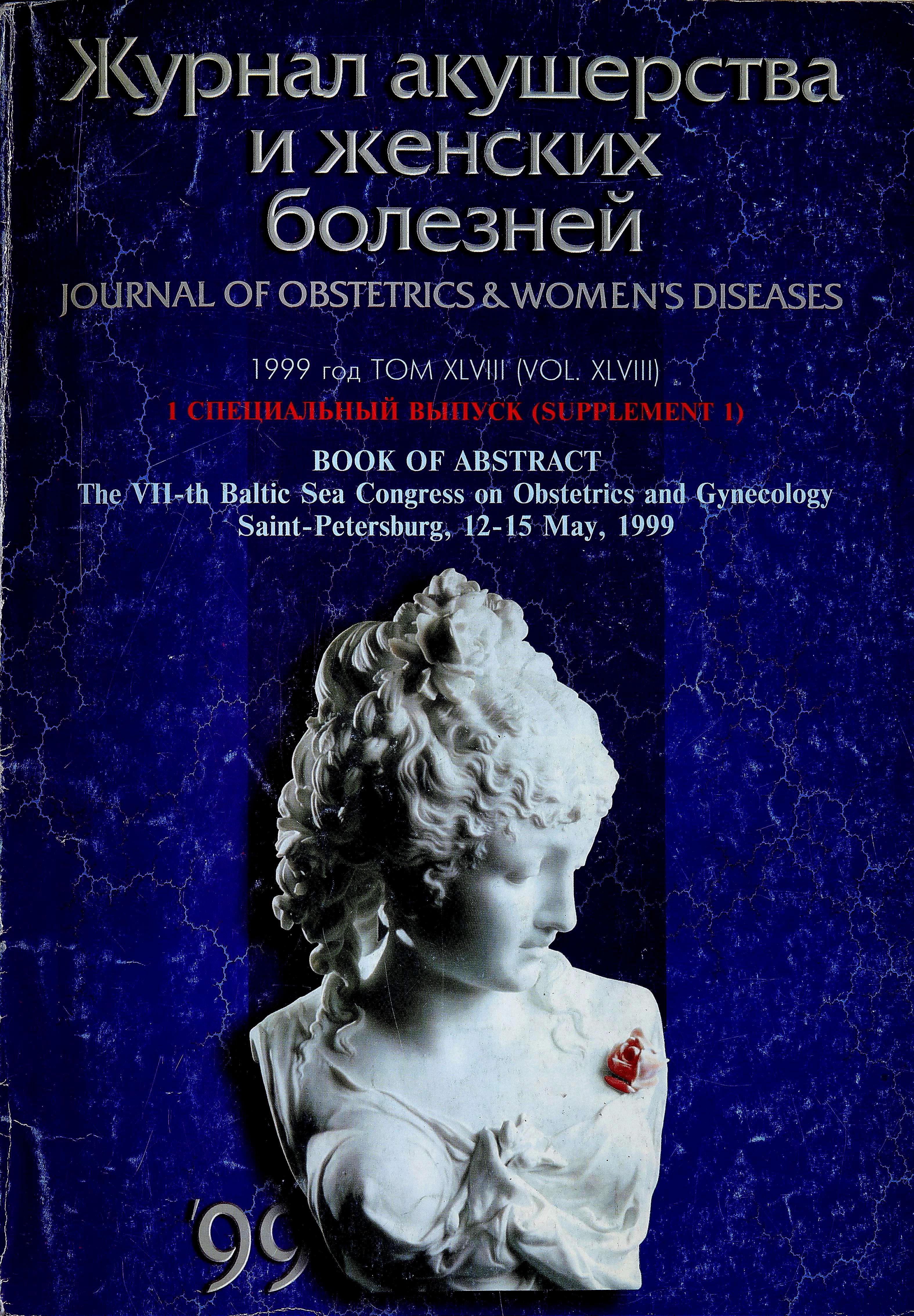Peculiarity of adaptation of neonates and placenta in the case of genital chlamydiosis in mothers
- Authors: Ailamazyan E.K.1, Evsyukova I.I.1, Koroleva L.I.1
-
Affiliations:
- D.O. Ott Institute of Obstetrics and Gynecology, Russian Academy of Medical Sciences
- Issue: Vol 48, No 5S (1999)
- Pages: 25-25
- Section: Articles
- Submitted: 14.02.2022
- Accepted: 14.02.2022
- Published: 15.12.1999
- URL: https://journals.eco-vector.com/jowd/article/view/100753
- DOI: https://doi.org/10.17816/JOWD100753
- ID: 100753
Cite item
Full Text
Abstract
Objective: To assess condition of newborns in early neonatal period in comparison with results of immunomorphological investigation of placenta in mothers with genital chlamydiosis.
Keywords
Full Text
Objective: To assess condition of newborns in early neonatal period in comparison with results of immunomorphological investigation of placenta in mothers with genital chlamydiosis.
Methods: 64 mature neonates were assessed, among them 48 were born from mothers with genital chlamydiosis (main group) and 16 — from healthy mothers (control group). Immunoluminiscent investigation of placenta included search of fixed immune complexes (IC) by the method of luminiscent antibodies using serum against human globulins, antifibrinogene, anticomplement, and monospecific serums for assessment of IgA, IgM, IgG. Hystological investigation of placenta was held in parallel.
Results: Only 19 neonates of main group were healthy, 29 neonates had neurological disorders, decreased processes of adaptation, they had lower body weight, higher incidence of hypoxia. Their condition correlated with changes in placentas. In placentas of sick neonates the highest level of pathogenic IC with excessive contents of C3b fraction of complement and IgM, were seen. In places of pathogenic IC storage, marked involutive—dystrophic changes, pathological immaturity of chorionic villi, inflammatory changes in a form of deciduitis and choriodeciduitis were seen.
Conclusions: Our investigation showed, that chlamydia can invade chorionic villi, led to formation of pathogenic IC which can cause the dysfunction of feto-placental complex and worsen perinatal outcome.
About the authors
E. K. Ailamazyan
D.O. Ott Institute of Obstetrics and Gynecology, Russian Academy of Medical Sciences
Author for correspondence.
Email: info@eco-vector.com
Russian Federation, St. Petersburg
I. I. Evsyukova
D.O. Ott Institute of Obstetrics and Gynecology, Russian Academy of Medical Sciences
Email: info@eco-vector.com
Russian Federation, St. Petersburg
L. I. Koroleva
D.O. Ott Institute of Obstetrics and Gynecology, Russian Academy of Medical Sciences
Email: info@eco-vector.com
Russian Federation, St. Petersburg
References
Supplementary files







